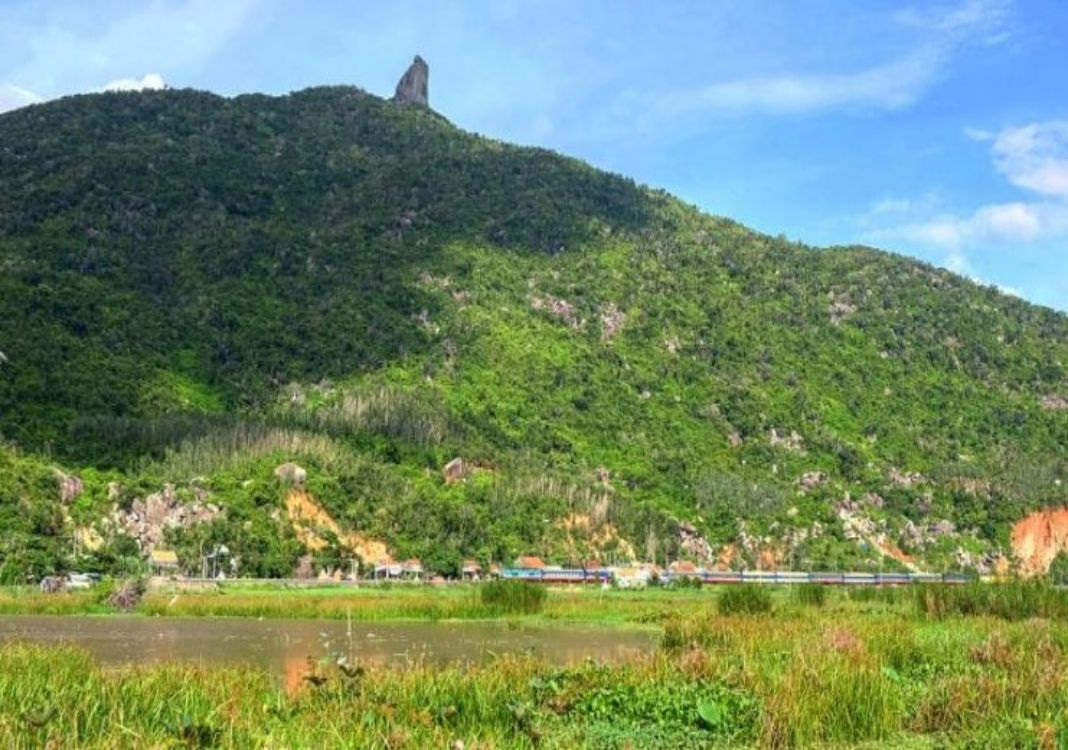Aside from beautiful beaches, Phu Yen Province also boasts tourist spots that may offer travelers interesting cultural values
Nhan Tower, Dong Cam Dam and Mang Lang Church are the highlights of this central coast province.
Dong Cam Dam
Rice fields with the accretion of alluvium from the Da Rang River in the province’s Tuy Hoa City are arguably the biggest in the south central region. These rice fields lining both sides of National Highway 25 stretch from Tuy Hoa to Gia Lai Province. In the ripe rice season, travelers can witness yellow rice fields extending to the foot of mountains.
Supplying water to the vast rice fields is Dong Cam Dam with all its mesmerizing scenes. The 688-meter-long dam has lasted for almost a century. It was built in 1924 and completed in 1932. The dam is 35 kilometers from Tuy Hoa.

City view from Nhan Tower
Nhan Tower is on the top of the mountain with the same name in the heart of Tuy Hoa City. Cham ethnic people built the five-story tower in the 11th century. On clear blue sky days, tourists standing on the apex of the mountain can watch not only the panoramic view of Tuy Hoa City beneath but also the view of Da Bia Mountain and the East Sea.
The panoramic view from Nhan Mountain is unique in that it shows the romantic Da Rang River whose banks dotted with rustic villages, especially Minh Ngoc flower village well-known for its beautiful gladiolus flower fields in full bloom.

Valley at the foot of Da Bia Mountain
Da Bia is a 700-meter mountain whose peak is a giant rock with a height of around 80 meters covered by white clouds nearly all year round.
The valley at the foot of the mountain is worth a visit. The small valley embraced by mountains and hills has a crystal clear lake where lotuses expose their beauty. Soaking your feet in the cold water lake after a stroll around hills may be an interesting experience.
Mang Lang Church
Built in 1892, the ancient Mang Lang Church by the Cai River has preserved “Christianity in Eight Days,” the first book in Vietnamese script printed in Roma, Italy, in 1651. The outdoor greenery of the church harmonizes with the rural scenery in the location.
By Phu Anh









